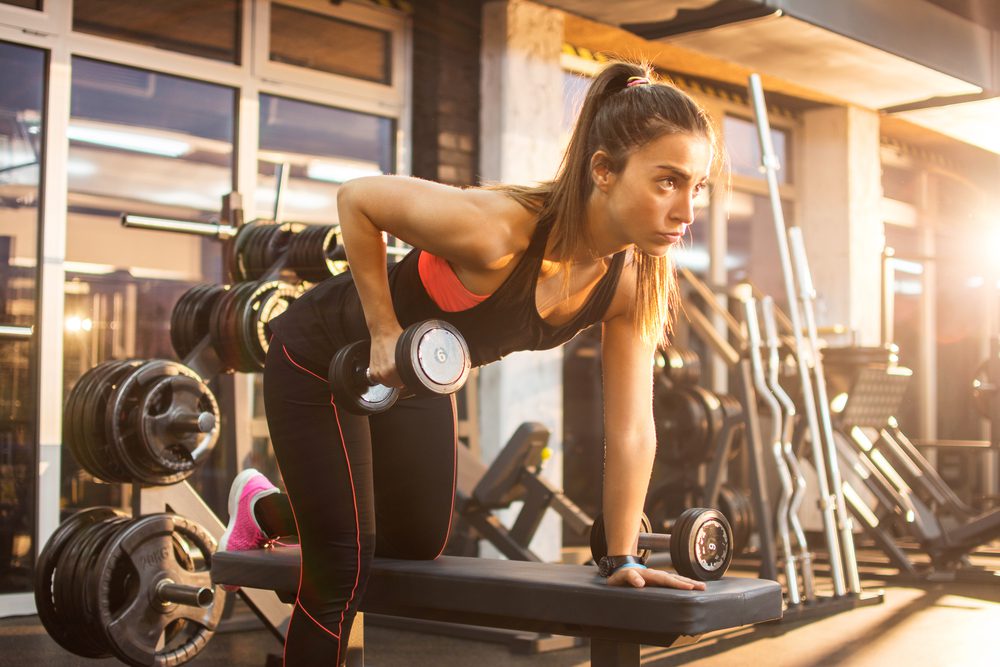![]() If you’re trying to build muscle, you’ve probably come across a slew of videos online by influencers and so-called experts discussing all the things you need to do outside of the gym to help your progress. One popular piece of advice is to avoid alcohol entirely if you want to build muscle, with many suggesting that drinking alcohol will prevent you from building muscle.
If you’re trying to build muscle, you’ve probably come across a slew of videos online by influencers and so-called experts discussing all the things you need to do outside of the gym to help your progress. One popular piece of advice is to avoid alcohol entirely if you want to build muscle, with many suggesting that drinking alcohol will prevent you from building muscle.
While this advice may sound a bit extreme, research shows there is some truth to these claims.
For example, one study looked at how eight physically active young men were affected by heavy alcohol intake (the equivalent of drinking around seven beers over a three hour period) after exercise. It found they had reduced muscle protein synthesis – the metabolic process that helps the body build muscle – compared to when no alcohol was consumed.
But while this suggests that binge drinking may hamper your muscle gains, it might not prevent you from gaining muscle altogether. And at the moment, evidence on the impacts of more moderate alcohol intake (one to two beers) on muscle gain is lacking.
However, there is similar research looking at the effects of alcohol in other body organs. For example, research looking at the liver shows that drinking the equivalent of two beers does not negatively impact liver protein synthesis rates – but drinking the equivalent of five beers does.
Similarly, research in rodents has also shown that moderate daily alcohol intake for two weeks did not impair muscle growth in response to overloading (a method used to cause muscle growth in rodents).
This implies that a beer or two is unlikely to impede your ability to build muscle in response to resistance exercise. The research also suggests there may be an alcohol intake threshold which – once you go over it – will negatively affect the body’s muscle growth response to resistance exercise.
However, we currently have no corresponding evidence of this effect in humans due to the ethical problems with asking volunteers to repeatedly consume large amounts of alcohol. This is why the majority of the existing studies on alcohol intake are performed in animals, which provide a model system often used to study muscle growth.

We’re still not entirely sure how alcohol affects the muscle building process. Image credit: Bojan Milinkov/ Shutterstock.com
The exact mechanisms by which alcohol impacts the muscle building process remain to be fully established. But some research has shown heavy alcohol consumption reduces the molecular signals which turn on the muscle-building process.
Specifically, in people who consumed alcohol after a workout, a protein known to help regulate the muscle building process – called mechanistic/mammalian target of rapamycin (mTOR) – did not increase to the same extent as in those who didn’t drink alcohol after their workout.
Alcohol’s effect on the body’s hormones – specifically testosterone – may also impact muscle gains. Testosterone is a hormone that helps increase muscle mass in response to resistance exercise training.
Research shows that moderate doses of alcohol – equivalent to around two beers – can actually increase testosterone levels. The downside, though, is that this increase doesn’t last very long, making it therefore unlikely to significantly contribute to muscle gain.
Research also shows that high levels of alcohol intake can actually reduce testosterone levels. This suggests that there’s a threshold beyond which alcohol impairs the benefits of exercise.
Research has also shown that you can counteract the effect of alcohol on muscle growth to some extent by ingesting between 20g-25g of protein after exercising (the equivalent of approximately three large eggs). This is likely due to the fact that protein intake is one of the main drivers of muscle growth in the body.
Other effects
Drinking alcohol can have many other effects on the body, such as causing weight gain. So what does this mean for a post-workout beer?
Well, the average 70kg person can burn anywhere between 108-216 calories per 30 minutes of weightlifting – depending on the intensity of the exercise. A pint of beer, on the other hand, contains around 200 calories.
So, it’s unlikely your post-workout drink will lead to excessive weight gain. But regularly indulging in heavy alcohol consumption may increase your risk of gaining weight.
If you’re someone who enjoys having a couple drinks throughout the week, it looks like a post-workout drink or two is unlikely to hamper your efforts to gain muscle – though binge drinking could.
Much more research is needed to better understand the impacts of different amounts of alcohol on muscle growth in response to exercise, particularly in other populations – such as women and older adults. So, for now, we continue to reiterate what we’ve said before: everything in moderation.![]()
Colleen Deane, Lecturer in Muscle Cell Biology, University of Southampton and Philip J Atherton, Professor of Clinical, Metabolic & Molecular Physiology, University of Nottingham
This article is republished from The Conversation under a Creative Commons license. Read the original article.
Source Link: Why A Couple Of Post-Workout Beers Probably Won’t Stop You Gaining Muscle